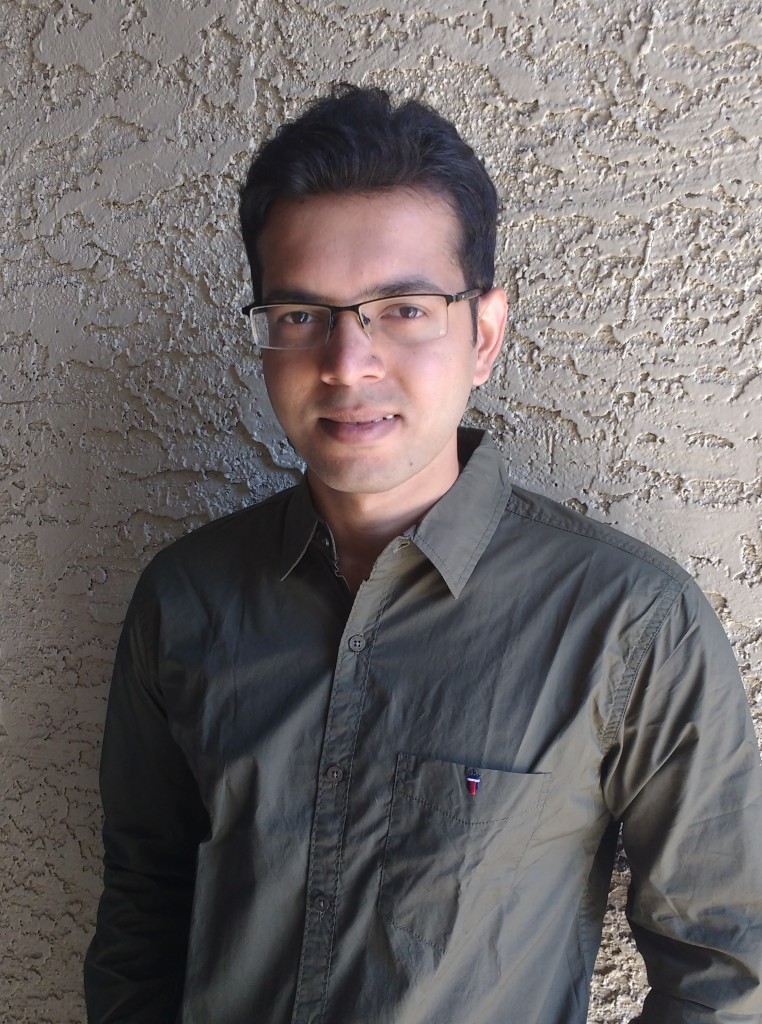Ph.D. Students
 Nutandev Bikkamane Jayadev*
Nutandev Bikkamane Jayadev*
I was a graduate student, pursuing my Ph.D. in Biomedical Engineering. I have a Masters degree in Biomedical Signal Processing and Instrumentation from Dayanada Sagar College of Engineering (KA, India). My master’s thesis work focused on developing a novel method in acquiring k-space data in MRI which involved the design of arbitrary k-space trajectories and their respective optimal gradient waveforms. I pursued postdoctoral studies and will continue as a research engineer. My research with Dr. Vikram Kodibagkar involved the application of compressed sensing to magnetic resonance spectroscopic imaging (MRSI).
*Successfully defended Ph.D. Dissertation on April 14th, 2021
Babak Moghadas*
Babak Moghadas completed his bachelor’s and master’s in Polymer Engineering at Amirkabir University of Technology (Tehran Polytechnic) in Iran. In 2017, he joined Dr. Kodibagkar’s team at Arizona State University (ASU) to pursue his Ph.D. in Biomedical Engineering in studying tissue oxygenation and tissue hypoxia. During his Ph.D., he has been investigating the application of magnetic resonance imaging (MRI) based techniques on detecting hypoxia and measuring tissue oxygenation. Specifically, he studied hypoxia in traumatic brain injury and rat brain tumors using hypoxia targeting MR contrast agents. He developed a novel iron-based hypoxia targeting contrast agent to eliminate any potential side-effects of gadolinium-based contrast agents.
*Successfully defended Ph.D. Dissertation on April 12th, 2021
Yuka Sugamura
I am pursuing my Ph.D. in Biomedical Engineering and joined the Probe lab in August 2019. I did my masters in Pharmacy (Showa Pharmaceutical University, Japan) and Biomedical Engineering (Arizona State University) where I worked on projects related to solubility enhancement of poorly soluble drugs and cardiac tissue engineering. My career background is in the fields of clinical pharmacy and regulatory affairs in medical devices and drugs. My research with Dr. Kodibagkar focuses on quantitative assessment of tissue oxygenation (pO2) using a MRI-based oximetry technique, Proton imaging of siloxanes to map tissue oxygenation levels (PISTOL), developed by our lab. We are applying PISTOL to in vivo models to monitor the brain tissue oxygenation around neural implants over long-term, as well as to in vitro models to measure pericellular pO2 within a 3D cell culture. Hypoxia or lack of oxygen plays a key role in the progression of various diseases including cancer, stroke, traumatic injuries, and diabetes. We envision that measuring and visualizing the heterogeneous pO2 distribution within the tissue can contribute to the further elucidation of hypoxia, which in turn can advance the understanding of the underlying mechanisms of diseases.
Lakshmisree Damodaran
I am a Ph.D. student in Biomedical Engineering. I have a Bachelor of Technology degree in Electronics and Communication Engineering from Amrita University, India and a Master’s degree in Electrical Engineering from the University of New Mexico, USA. My master’s research has been focused on Image and Signal Processing, Object Identification, and Machine Learning applications in detecting specific features in images. While pursuing my masters, I worked at the Neurology department, UNM, where I focused on processing MRI data for obtaining brain tumor margin using image processing. I find the application of engineering principles and design concepts to medicine and biology for healthcare purposes very exciting which is the reason why I chose to do my Ph.D. in Biomedical Engineering. My research mentor is Dr. Vikram Kodibagkar. My research interests are MRSI-imaging, biomedical image processing and signal gathering.
My future goal after Ph.D. is to obtain a post doc position to continue my training as a researcher and gain skills and experience that will prepare me for my academic career.
